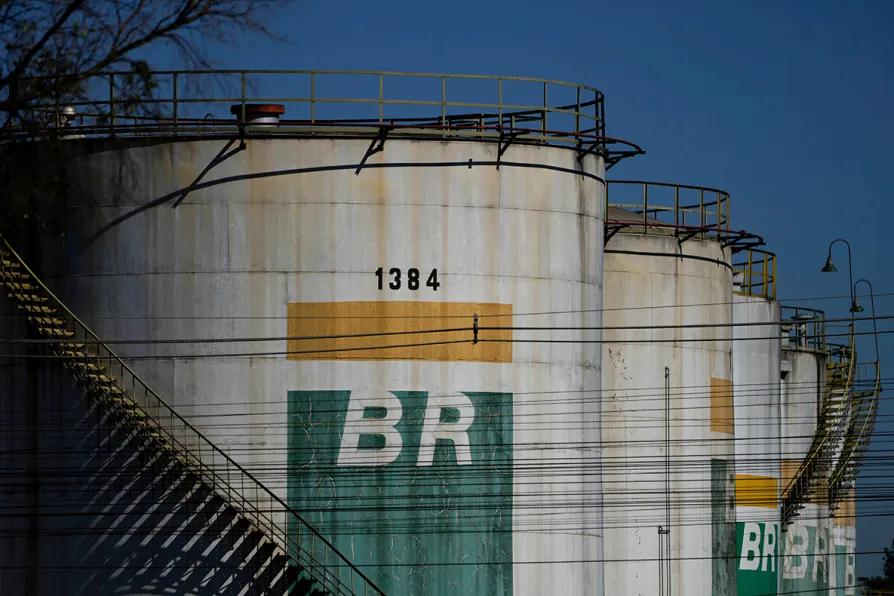
 Fuel reservoirs sit at a distribution center for state-run oil company Petrobras, in Brasilia, Brazil, May 15, 2024
Fuel reservoirs sit at a distribution center for state-run oil company Petrobras, in Brasilia, Brazil, May 15, 2024
CLIMATE campaigners slammed the Brazilian government’s approval on Monday for exploratory drilling by state-run oil company Petrobras near the mouth of the Amazon river.
The decision comes only weeks before the United Nations climate conference in Belem, Cop30.
The Equatorial Margin deposit off the coast of Brazil, which stretches from Brazil’s border with Suriname to a part of the country’s north-east region, is home to little-studied mangroves and a coral reef, and activists and experts have said the project risks leaks that could be carried widely by tides and imperil the sensitive environment.
Petrobras said in a statement on Monday that the drilling could start right away and take up to five months. It requested to conduct the exploratory drilling in block FZA-M-059, which lies 108 miles offshore the northern Brazilian state of Amapa bordering Suriname.
The company added that the exploratory well will not produce any oil.
The decision was made by environmental regulator IBAMA. In May 2023, that same body declined to grant Petrobras a licence to drill in that region.
“After the refusal, IBAMA and Petrobras started an intense discussion that allowed a meaningful improvement of the project, especially in its structure of responding to emergencies,” the environmental regulator said in a statement.
Energy Minister Alexandre Silveira celebrated the decision as a way to defend “the future of our energy sovereignty.”
After the decision was announced, Mr Silveira said: “We made a firm and technical defence [of the drilling in the region] so we can assure that the exploration takes place with complete environmental responsibility, within the highest international standards and concrete benefits for Brazilians.”
In June, Brazil auctioned off several potential land and offshore oil sites near the Amazon river, as it aims to expand production in untapped regions despite protests from environmental and indigenous groups.
Some 19 offshore blocks were awarded to Chevron, ExxonMobil, Petrobras and China National Petroleum Corporation.
Suely Araujo, a co-ordinator at the Climate Observatory, a network of environmental non-profit groups, said that Brazil’s government “acts against humanity by stimulating more expansion of fossil [fuels], and betting on more global warming.”
“It also harms Cop30 itself, whose most important delivery needs to be the gradual elimination of fossil fuels,” Mr Araujo said in a statement.
President Luiz Inacio “Lula” da Silva pushed for more use of biofuels during his first two terms, from 2003 to 2010, but that was revised after huge offshore discoveries close to Rio de Janeiro state became a means of financing health, education and welfare programmes.










